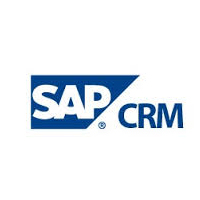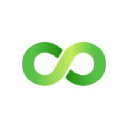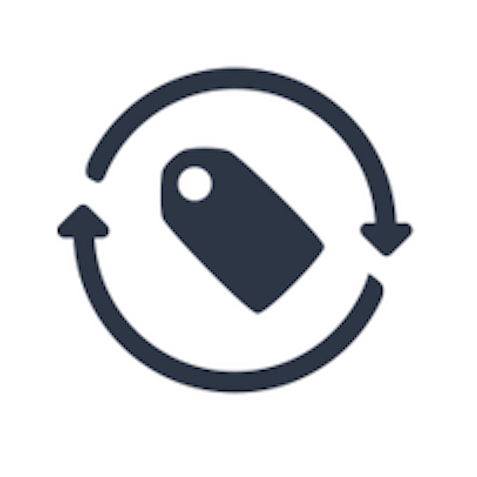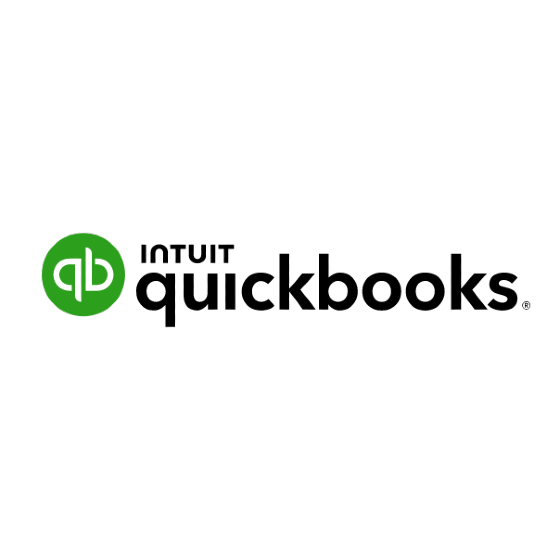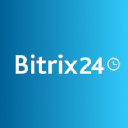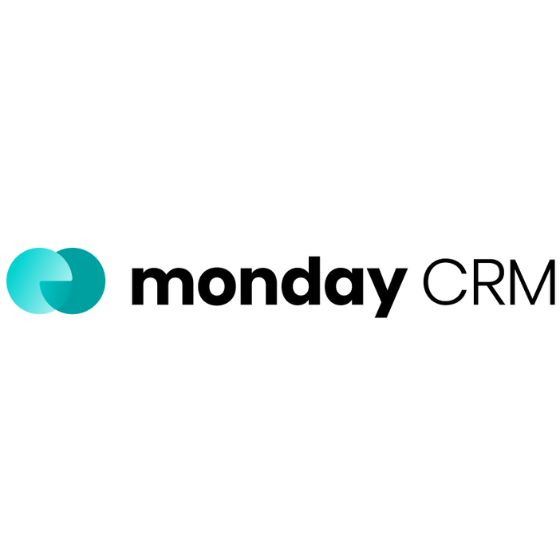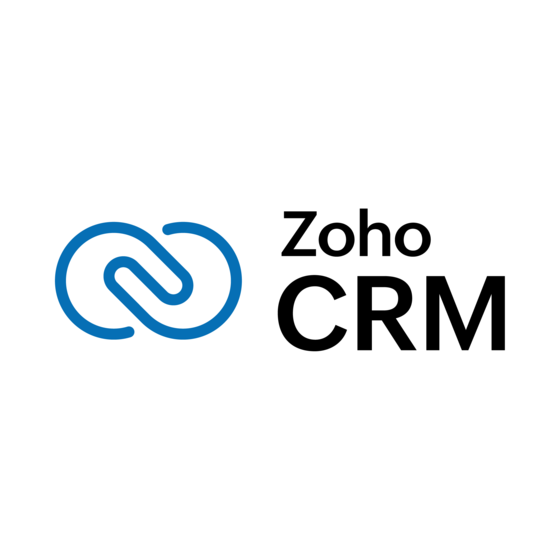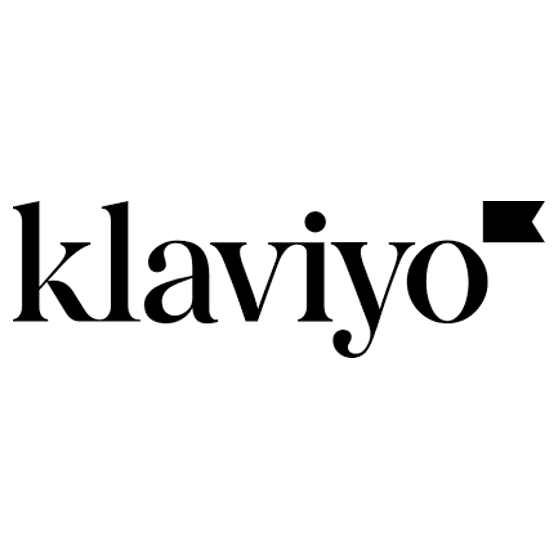SAP CRM Review: Pros, Cons, Features & Pricing
SAP CRM is a customer relationship management (CRM) software that helps businesses manage interactions with customers, streamline processes, and improve profitability. It’s particularly beneficial for large enterprises in industries like manufacturing, telecommunications, and financial services, where complex customer interactions and data integration are key—think sales teams, customer service departments, and marketing divisions. SAP CRM offers value by enhancing your team’s ability to gain actionable insights and maintain strong customer relationships, crucial for driving business success.
SAP CRM Evaluation Summary
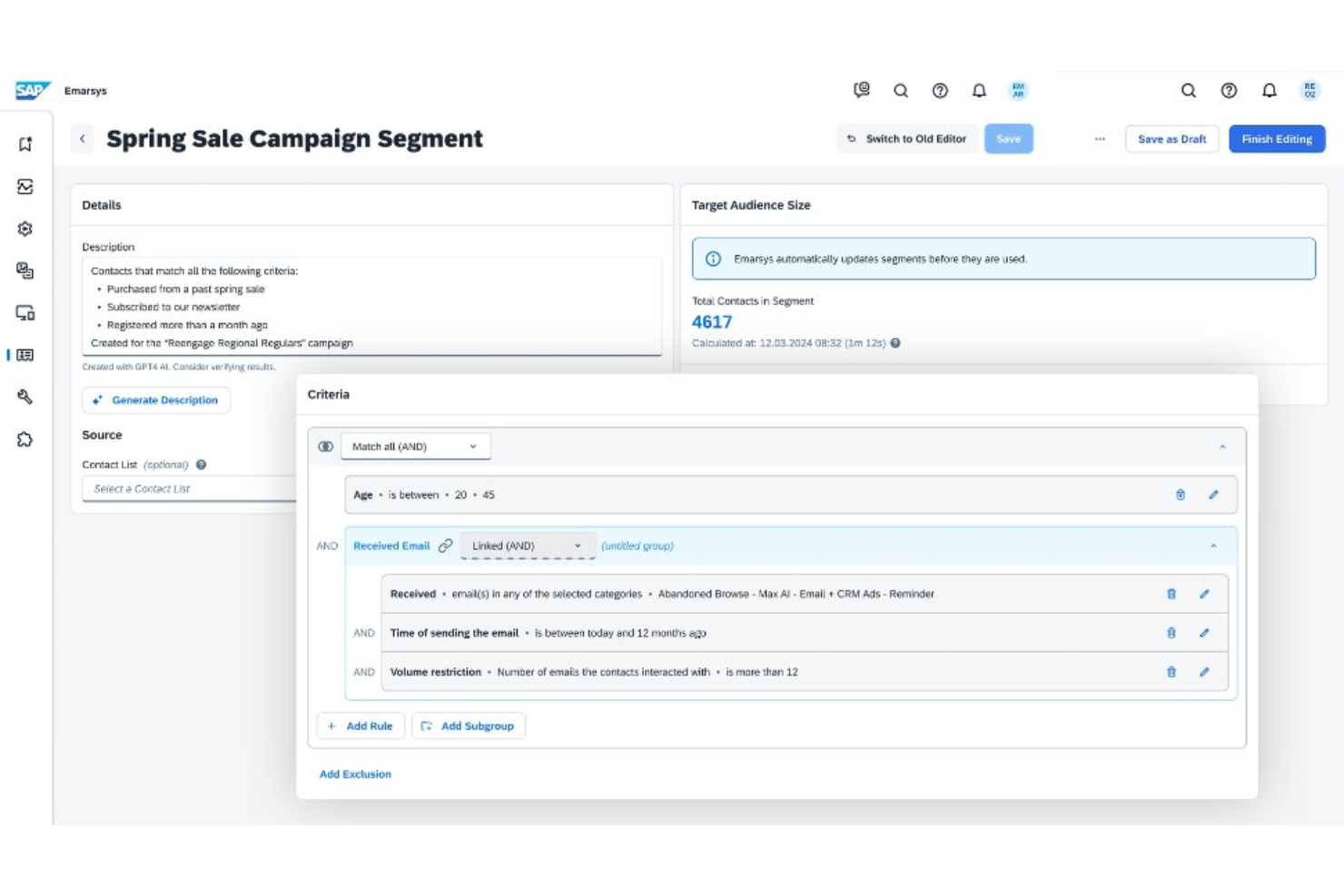
- Pricing upon request
Why Trust Our Software Reviews
SAP CRM Overview
SAP CRM excels with robust analytics and integration capabilities, making it ideal for businesses needing detailed customer insights and efficient operations.
pros
-
It enhances your workflow with efficient process automation.
-
Your teams benefit from its strong customization options.
-
You get detailed customer insights with its robust analytics.
cons
-
System updates can sometimes disrupt your workflow.
-
Your team could experience a steep learning curve.
-
You might find the user interface a bit dated.
-

Expedite Commerce
Visit Website -

Prisync
Visit WebsiteThis is an aggregated rating for this tool including ratings from Crozdesk users and ratings from other sites.4.7 -

QuickBooks Online
Visit WebsiteThis is an aggregated rating for this tool including ratings from Crozdesk users and ratings from other sites.4
How We Test & Score Tools
We’ve spent years building, refining, and improving our software testing and scoring system. The rubric is designed to capture the nuances of software selection and what makes a tool effective, focusing on critical aspects of the decision-making process.
Below, you can see exactly how our testing and scoring works across seven criteria. It allows us to provide an unbiased evaluation of the software based on core functionality, standout features, ease of use, onboarding, customer support, integrations, customer reviews, and value for money.
Core Functionality (25% of final scoring)
The starting point of our evaluation is always the core functionality of the tool. Does it have the basic features and functions that a user would expect to see? Are any of those core features locked to higher-tiered pricing plans? At its core, we expect a tool to stand up against the baseline capabilities of its competitors.
Standout Features (25% of final scoring)
Next, we evaluate uncommon standout features that go above and beyond the core functionality typically found in tools of its kind. A high score reflects specialized or unique features that make the product faster, more efficient, or offer additional value to the user.
We also evaluate how easy it is to integrate with other tools typically found in the tech stack to expand the functionality and utility of the software. Tools offering plentiful native integrations, 3rd party connections, and API access to build custom integrations score best.
Ease of Use (10% of final scoring)
We consider how quick and easy it is to execute the tasks defined in the core functionality using the tool. High scoring software is well designed, intuitive to use, offers mobile apps, provides templates, and makes relatively complex tasks seem simple.
Onboarding (10% of final scoring)
We know how important rapid team adoption is for a new platform, so we evaluate how easy it is to learn and use a tool with minimal training. We evaluate how quickly a team member can get set up and start using the tool with no experience. High scoring solutions indicate little or no support is required.
Customer Support (10% of final scoring)
We review how quick and easy it is to get unstuck and find help by phone, live chat, or knowledge base. Tools and companies that provide real-time support score best, while chatbots score worst.
Customer Reviews (10% of final scoring)
Beyond our own testing and evaluation, we consider the net promoter score from current and past customers. We review their likelihood, given the option, to choose the tool again for the core functionality. A high scoring software reflects a high net promoter score from current or past customers.
Value for Money (10% of final scoring)
Lastly, in consideration of all the other criteria, we review the average price of entry level plans against the core features and consider the value of the other evaluation criteria. Software that delivers more, for less, will score higher.
Core Features
Contact Management
SAP CRM lets you store and manage customer data easily, helping your team keep track of interactions and history. This feature ensures your customer information is organized and accessible.
Sales Automation
Automate repetitive sales tasks with SAP CRM, allowing your sales team to focus on closing deals. It streamlines your sales process and boosts efficiency.
Lead Management
SAP CRM helps you track and manage leads from prospect to conversion. It provides tools to prioritize leads and improve your team's sales strategy.
Customer Service Management
Enhance your customer service with tools for case management and support tracking. Your team can resolve issues faster and improve customer satisfaction.
Marketing Campaign Management
Plan and execute targeted marketing campaigns with SAP CRM's robust tools. It helps you analyze results and refine your marketing strategies.
Reporting and Analytics
Gain insights into your business performance with SAP CRM's detailed reporting. Its analytics offer valuable data to guide your decision-making.
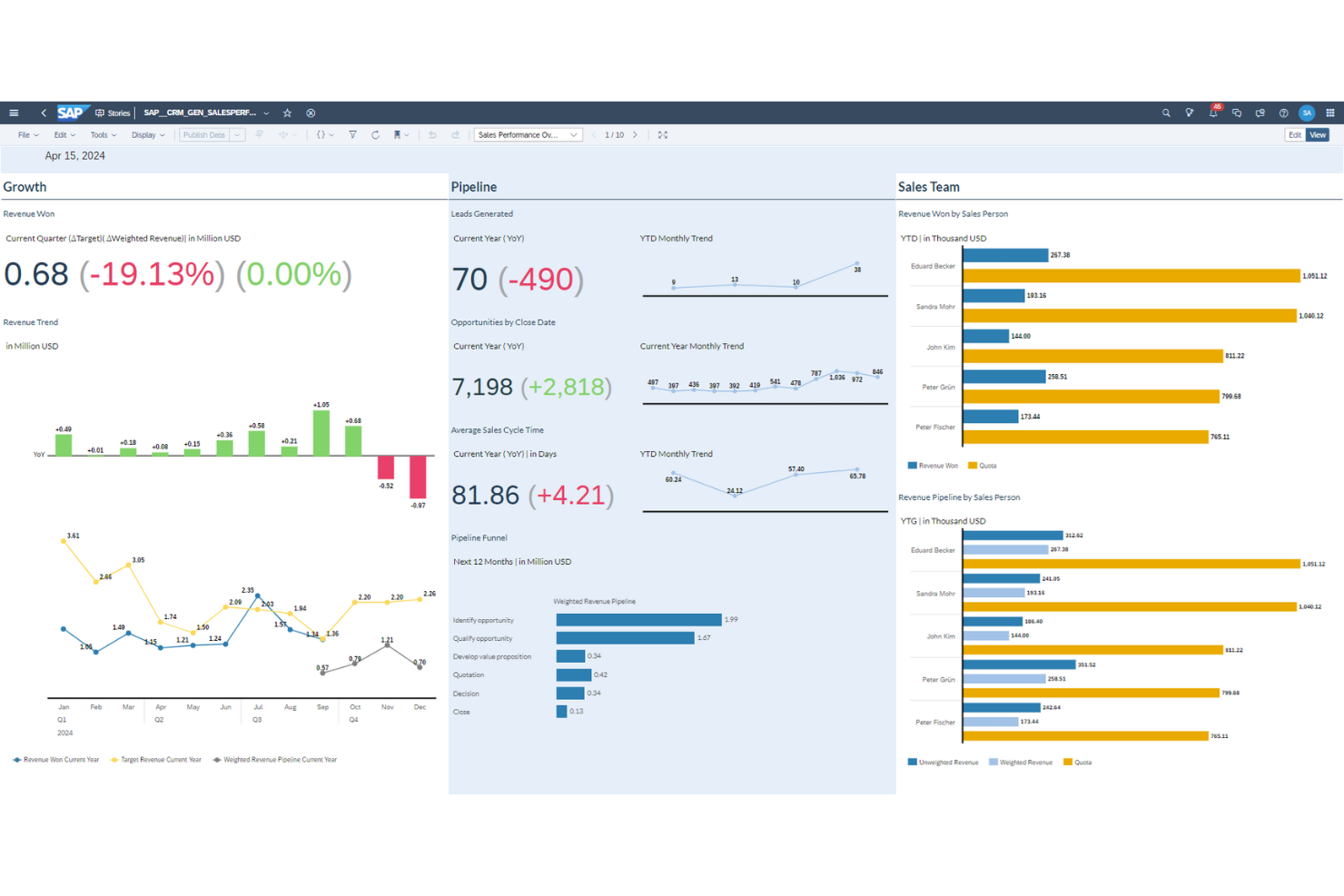
Ease of Use
SAP CRM can feel overwhelming due to its complexity and extensive feature set, making it less user-friendly for those unfamiliar with sophisticated systems. Your team might face a learning curve, especially if they’re new to CRM software. However, once you get accustomed to its interface, the powerful tools and customization options can significantly enhance your workflow and efficiency. Training and time investment are key to unlocking its full potential.
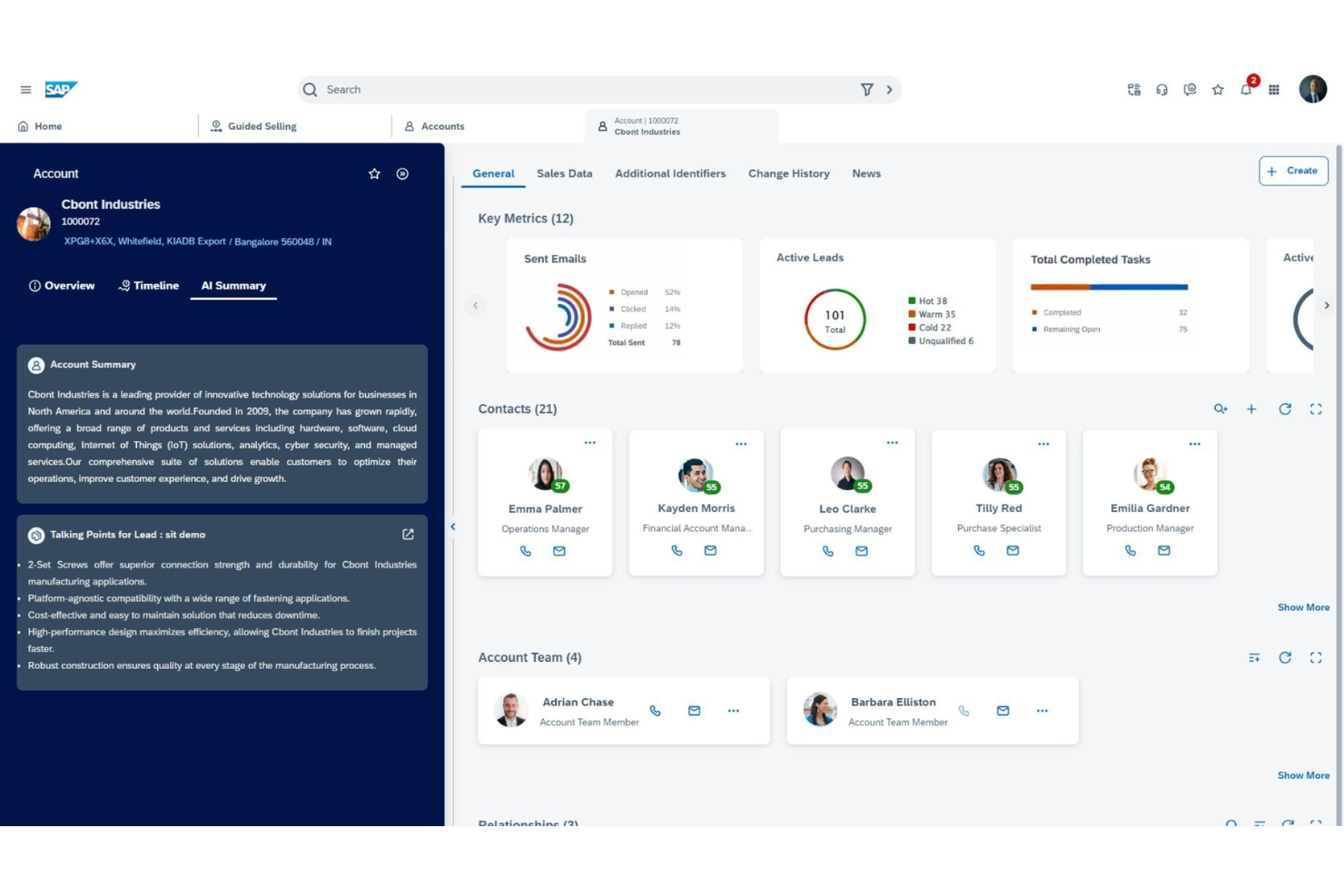
Integrations
Integrations include SAP Marketing Cloud, SAP Sales Cloud, SAP Commerce Cloud, SAP Service Cloud, SAP Customer Data Cloud, SAP CRM Interaction Center, SAP CRM Web Channel, SAP CRM Partner Channel Management, SAP C/4HANA, Salesforce, Optimizely, and SAP Cloud for Customer.
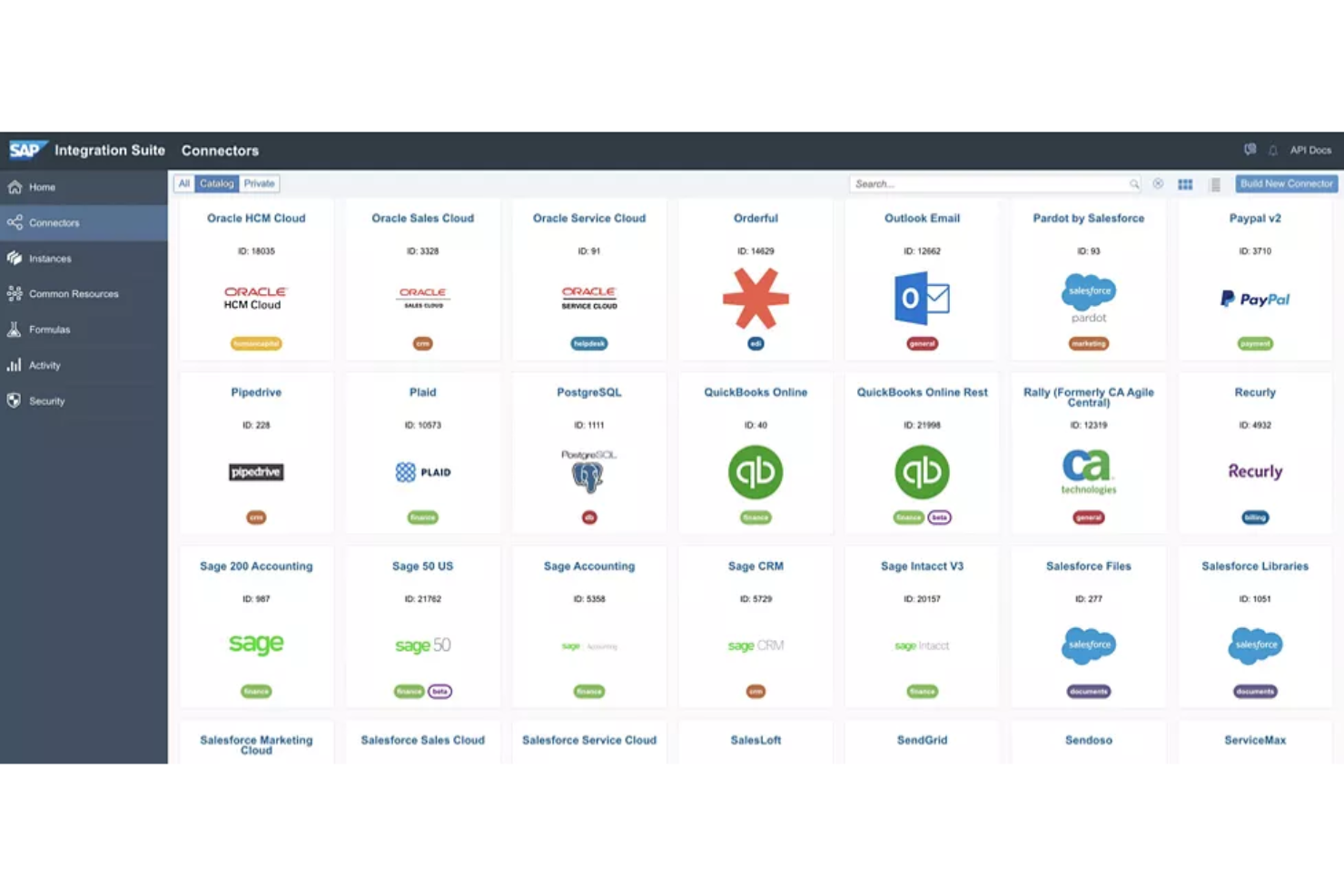
SAP CRM Specs
- 2-Factor Authentication
- API
- Calendar Management
- Call Tracking
- Campaign Management
- Click-to-Dial
- Contact Management
- Contact Sharing
- Custom Data Forms
- Customer Management
- Dashboard
- Data Export
- Data Import
- Data Visualization
- Email Integration
- External Integrations
- File Sharing
- File Transfer
- Google Apps Integration
- Lead Management
- Lead Scoring
- Marketing Automation
- Mobile App
- Multi-User
- Notifications
- Pipeline Management
- Sales Automation
- Scheduling
- Social-Media Integration
- Task Scheduling/Tracking
- Third-Party Plugins/Add-Ons
SAP CRM FAQs
How does SAP CRM handle data security and compliance?
Can SAP CRM be customized to fit our specific business needs?
What support and resources are available for SAP CRM users?
How scalable is SAP CRM for growing businesses?
What training options are available for new SAP CRM users?
How does SAP CRM integrate with existing business systems?
Does SAP CRM offer mobile access for remote teams?
How does SAP CRM support sales automation?
What's Next?
To stay up to date on all the latest from our subject matter experts, don't forget to subscribe to our newsletter.

